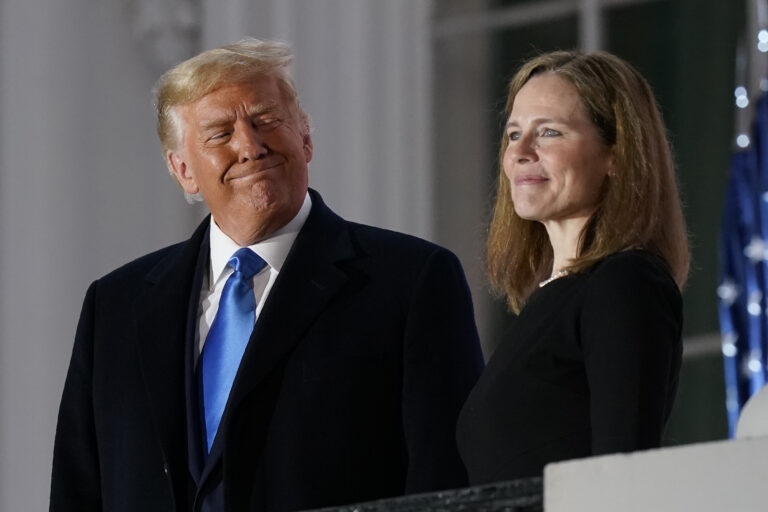The Court of Death

California had a rule restricting all home gatherings, religious, to a maximum of people from three households. The Supreme Court has just thrown out this order in a 5-4 opinion, based on the transparently specious assertion that the 1st Amendment requires the state to treat religious activities the same as “comparable” secular activities that are in fact not remotely comparable.
The First Amendment requires that a State treat religious conduct as well as the State treats comparable secular conduct. Some-times finding the right secular analogue may raise hard questions. But not today. California limits religious gatherings in homes to three households. If the State also limits all secular gatherings in homes to three households, it has complied with the First Amendment. And the State does exactly that: It has adopted a blanket restriction on at-home gatherings of all kinds, religious and secular alike.California need not, as the per curiam insists, treat at-home religious gatherings the same as hardware stores and hair salons—and thus unlike at-home secular gatherings, the obvious comparator here. As the per curiam’s reliance on separate opinions and unreasoned orders signals, the law does not require that the State equally treat apples and watermelons.
And even supposing a court should cast so expansive a comparative net, the per curiam’s analysis of this case de-fies the factual record. According to the per curiam, “the Ninth Circuit did not conclude that” activities like frequenting stores or salons “pose a lesser risk of transmission” than applicants’ at-home religious activities.Ante, at 3. But Judges Milan Smith and Bade explained for the court that those activities do pose lesser risks for at least three reasons. First, “when people gather in social settings, their interactions are likely to be longer than they would be in a commercial setting,” with participants “more likely to be involved in prolonged conversations.” Second, “private houses are typically smaller and less ventilated than commercial establishments.” And third, “social distancing and mask-wearing are less likely in private settings and enforcement is more difficult.” These are not the mere musings of two appellate judges: The district court found each of these facts based on the uncontested testimony of California’s public-health experts…
In ordering California to weaken its restrictions on at-home gatherings, the majority yet again “insists on treating unlike cases, not like ones, equivalently.” And it once more commands California “to ignore its experts’ scientific findings,” thus impairing “the State’s effort to ad-dress a public health emergency.” Because the majority continues to disregard law and facts alike, I respectfully dissent from this latest per curiam decision.
Relevant to today’s earlier discussion, this case almost certainly would have come out the other way had Ginsburg and Breyer put the interests of the country above their own selfish interests in 2013. The Supreme Court has literally life-of-death powers that are more important than the vanity of the individuals who serve on it.
